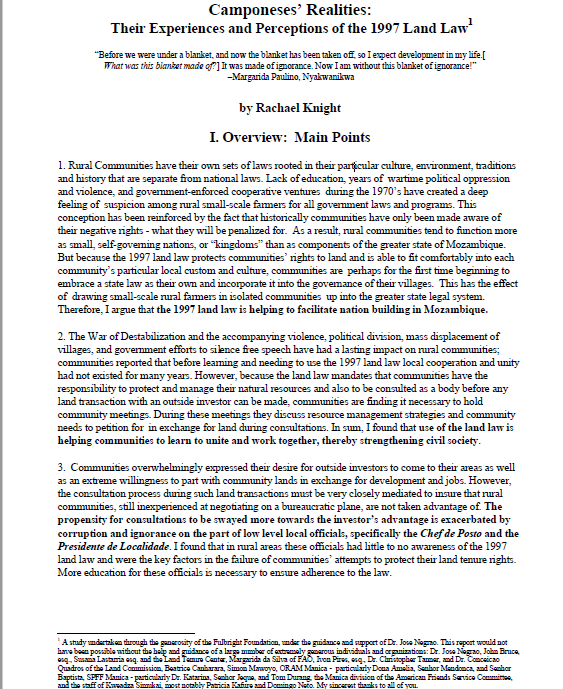Resource information
Rural Communities have their own sets of laws rooted in their particular culture, environment, traditions and history that are separate from national laws. Lack of education, years of wartime political oppression and violence, and government-enforced cooperative ventures during the 1970’s have created a deep feeling of suspicion among rural small-scale farmers for all government laws and programs. This
conception has been reinforced by the fact that historically communities have only been made aware of
their negative rights - what they will be penalized for. As a result, rural communities tend to function moreas small, self-governing nations, or “kingdoms” than as components of the greater state of Mozambique.
But because the 1997 land law protects communities’ rights to land and is able to fit comfortably into each community’s particular local custom and culture, communities are perhaps for the first time beginning to embrace a state law as their own and incorporate it into the governance of their villages. This has the effect of drawing small-scale rural farmers in isolated communities up into the greater state legal system.
Therefore, I argue that the 1997 land law is helping to facilitate nation building in Mozambique.

